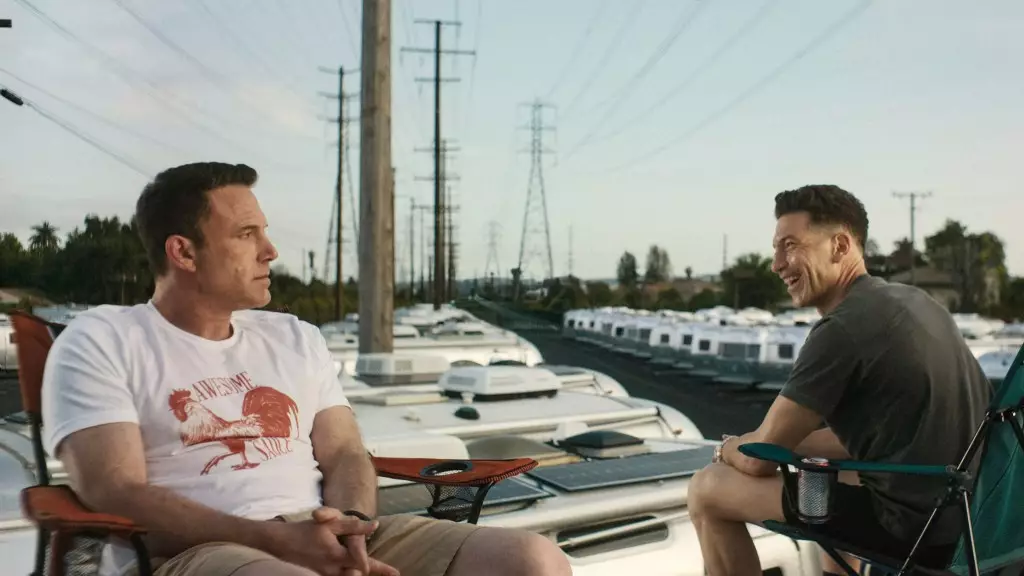In a world steadily awakening to the importance of inclusivity and understanding, recent comments made by Robert F. Kennedy Jr. spark an outcry that can’t be ignored. His rhetoric framing autism as a “preventable disease” paints a woefully inaccurate picture that not only misrepresents the neurodivergent community but also perpetuates harmful stereotypes. Kennedy’s proclamation that autism “destroys families” reflects a tragically narrow mindset that overlooks the unique talents and perspectives that individuals with autism bring to the table. Such narratives are not merely misguided; they risk damaging the progress that advocacy groups have tirelessly fought for over the years, reinforcing outdated stigmas and fear.
Gavin O’Connor, the director of the much-anticipated sequel, *The Accountant 2*, aims to create a counter-narrative. He hopes the film will serve as a beacon for the neurodivergent community, humanizing characters and embracing their complexities. However, O’Connor’s intent doesn’t exist in a vacuum; it must contend with the cultural landscape in which it is released, marked by both progress and backlash. The gulf between O’Connor’s vision and the public dialogue is a stark reminder of Hollywood’s responsibility in shaping perceptions of autism and similar neurodivergent conditions.
Controversial Casting Choices and Authentic Representation
Beneath the surface of *The Accountant 2*, there is a valid discussion surrounding the casting of Ben Affleck, a neurotypical actor, in the role of Christian Wolff, an accountant on the autism spectrum. The criticism that Affleck’s portrayal comes off as caricaturish is not merely a matter of taste; it highlights a significant ethical question within the industry. Why is it that the opportunity to portray such nuanced stories often lands in the hands of those who do not live those experiences? While O’Connor and his team have taken steps to consult with experts and include individuals on the spectrum in the film, the reality is that the acting profession frequently fails to prioritize authentic representation.
The conversation surrounding who gets to tell these stories is crucial. It suggests that even when intent is grounded in goodwill, the execution can falter if the people involved do not possess a direct understanding of the lived experiences being portrayed. A neurodivergent actor could not only bring authenticity but also a voice that has frequently been marginalized in Hollywood narratives.
Autism Advocacy: The Need for More than Tokenism
O’Connor’s commitment to humanizing the character is commendable, but it is essential to remember that representation should extend beyond mere tokenism. The inclusion of a neurodivergent character like Justine, played by Allison Robertson, is a positive step, yet it feels superficial if not bolstered by deeper storytelling that prioritizes neurodivergent voices. The inclusion of such characters should not serve as a checkbox but rather as a pivotal aspect of storytelling that enriches a narrative, enabling audiences to grasp the diverse spectrum of human experience.
Moreover, there is a palpable need for Hollywood to take accountability for its longstanding patterns of exclusion. The desire for neurodivergent characters to be accurately and compassionately represented can only be fulfilled by radically rethinking the conventions that have guided cinematic storytelling up to this point. It’s simply not enough to cast a few neurodivergent actors and expect it to heal the wounds caused by decades of misunderstanding and conflict.
As creatives wrestle with these ideas, a question lingers in the air: can films like *The Accountant 2* truly shift public perception, or will they be yet another symbol of the industry’s unchecked privilege? This artistic endeavor must strive to not only entertain but to enlighten, moving beyond tropes and stereotypes in favor of multi-faceted narratives that acknowledge the realities of the neurodivergent experience.
In an age where social awareness is more accessible than ever, Hollywood faces a pivotal moment to embrace change. By prioritizing authenticity over convenience and diving deeper into the emotional and intellectual richness of neurodiversity, the industry can catalyze a more inclusive and empathetic society.


Leave a Reply